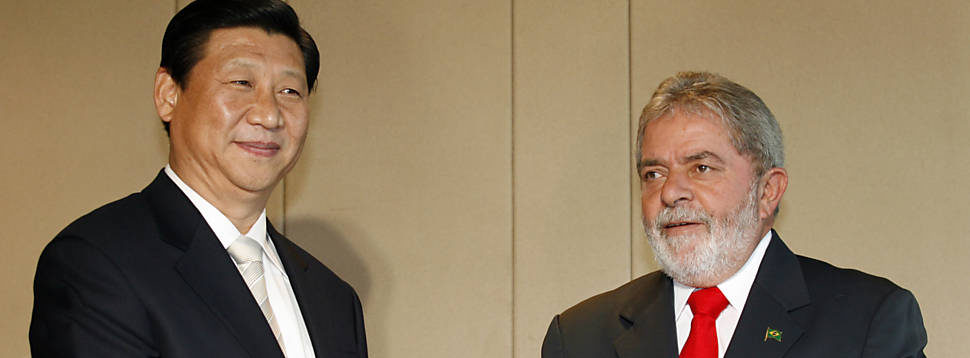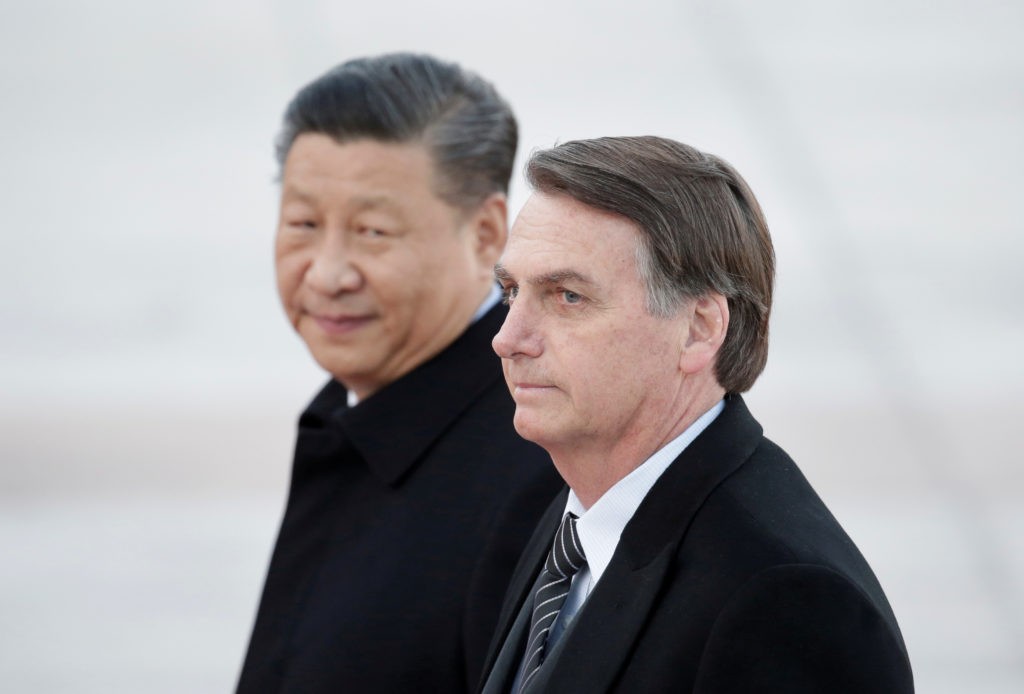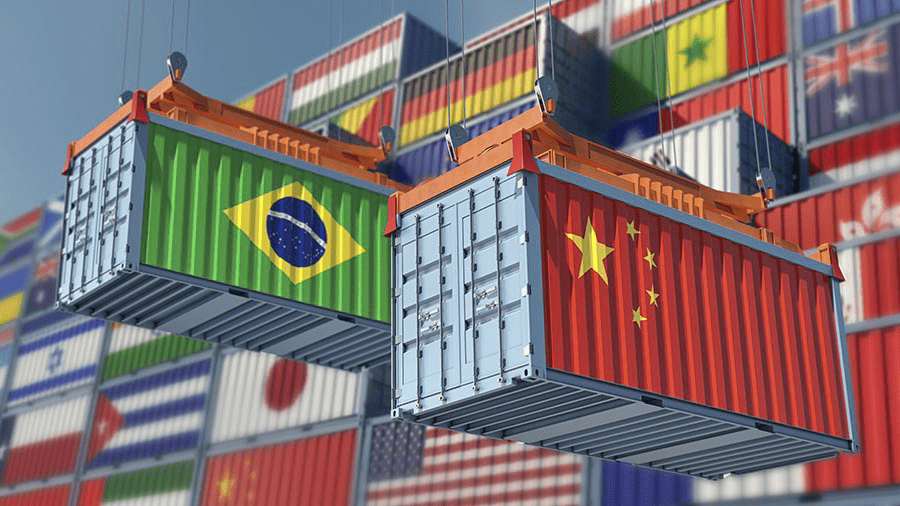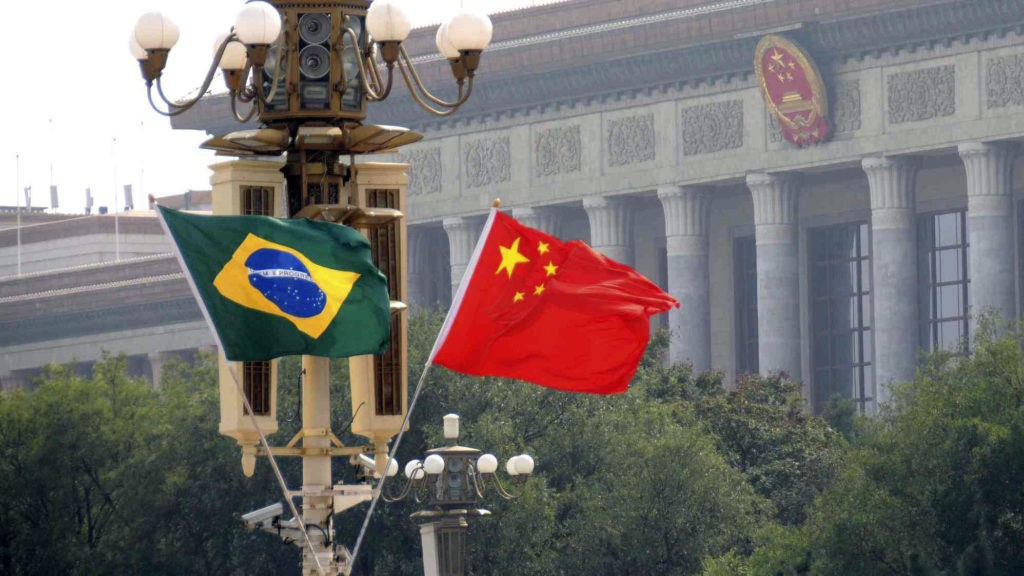China has been Brazil’s largest trading partner for many years. Exports, however, are practically concentrated in products such as soybeans, iron ore, and even petroleum. However, this Portuguese-speaking country wants to diversify its export products and sees Macau as a gateway, with Forum Macau playing a “prominent role in this process,” said Adriano Giacomet de Aguiar, Brazil’s delegate to the Permanent Secretariat of Forum Macau.
In a conversation with PLATAFORMA, the Brazilian delegate to the Permanent Secretariat of Forum Macau began by highlighting the role of this multilateral mechanism for intergovernmental cooperation, in which he has great confidence for the economic development of all the countries involved.

“The Macau Forum is an important space for cooperation between China, Macau and the Portuguese-speaking countries. In addition to fostering economic and trade relations, the Forum has performed the function of increasing mutual knowledge among participants. The Forum provides opportunities for exchange between specialists from different countries, has developed relevant initiatives to spread the Portuguese and Chinese languages and has expanded cultural dissemination activities. All members benefit from the increased links between the Portuguese-speaking world, Macau and China,” said Adriano Giacomet de Aguiar.
Read also: “China is a key partner in the industrialization of Brazilian science and technology”
With Lula de Silva once again at the head of Brazil’s destiny, since January 1, it will not be surprising to see an even greater rapprochement with China, unlike what happened with Jair Bolsonaro, from a political point of view. The connection of the now Brazilian president to Xi Jinping, his Chinese counterpart, has long been known, and this could be a determining factor for trade growth between the two countries.

“The creation of the Macau Forum occurred in the first year of President Lula’s first term in office, which in itself is indicative of the historical importance attributed by the current President to the Forum. In his recent meeting with the vice-president of China, Wang Qishan, on the occasion of his inauguration ceremony, President Lula emphasized China’s relevance to Brazil and the desire to expand bilateral relations. The Brazilian Minister of Foreign Relations, Mauro Vieira, also announced the President’s interest in visiting China in the first months of 2023. These are positive signs for bilateral relations, which also reflect positively on Brazil’s participation in the Macau Forum,” said the representative of Brazil at the Macau Forum.
It is true that in political matters the links between Brazil and China have suffered a lot with Jair Bolsonaro. There has been a lot of controversy in recent years, but for the sake of this South American country, trade exchanges did not seem to get affected much.

“Regarding trade, China has figured, since 2009, as our main trading partner and Brazil is the main supplier of agribusiness products to China, contributing to the country’s food security. The complementarity between the two economies is an important feature of our relations and helps explain their rapid development,” he says.
In 2022, the bilateral trade flow reached a historic high, reaching 150 billion US dollars, about 10 percent higher than last year and double that of just five years ago (in 2017, the trade flow reached 75 billion US dollars). In 2022, China benefited from significant expansion of Brazilian imports, with an increase of 27.5 percent, compared to the previous year,” pointed out Adriano Giacomet de Aguiar.
The vast majority of the exportation of products to Brazil is fixed on little raw material. Or rather, a small amount of products covers practically all the commercial export between this Portuguese-speaking country and China. Brazil’s next step, or at least the step that the government and the companies involved intend to take, is to try to get new products to the other side of the world. And this is where Macau and the Macau Forum may have a very important say.

“From the Brazilian perspective, one of our challenges is to export products with higher added value to the Chinese market. About 75 percent of our exports to China are concentrated in just three products (soy, iron ore and oil). Macau, due to its economic characteristics and Lusophone legacy, can contribute to this diversification process, especially in the areas of services and creative economy. The Special Administrative Region of Macau may become a relevant gateway to China for certain Brazilian products and the Forum of Macau has an important role in this process,” says the representative.
Read more on the subject: Brazil Imports US Soybeans to Restore Exports to China
As for the role of the Macau Forum, itself, the representative of Brazil believes that it will be fundamental, especially at the level of Chinese investments.
Optimism is thus the watchword.
Chinese companies have benefited from the stable, non-discriminatory, and dynamic business environment of the Brazilian market, but there is still enormous room for growth and expansion, especially in the infrastructure and technology sectors. According to specialized “think tanks”, Brazil was, in 2021, the main destination for Chinese investments in the world, and is among the four main destinations for Chinese companies’ investments in the last twenty years. Taking into account Brazil’s interest in attracting new foreign investments, as well as economic indicators that point to the growth of the national economy, we are optimistic that this positive trend will continue in the coming years,” he says.

“The Macau Forum, through the Fund for Development Cooperation between China and the Portuguese-Speaking Countries, has the potential to contribute to this process also through investments. External contributions are fundamental to make the Brazilian economy more dynamic and increase its competitiveness.
Read also: Brazil will not send ammunition to Ukraine and Lula says it is time for China to get “hands on”
The Forum for Economic and Trade Cooperation between China and Portuguese-Speaking Countries, also called Forum Macau, was then created in 2003, with the main objective of contributing to the development and strengthening of trade and economic relations between China and these members of Lusophony. Besides an economic relationship, Adriano highlights the power that culture and art may have in the future in the relationship with China.

“No less important are the initiatives to spread the Lusophony and the cultures of the participating countries. The increase in contact between the societies of the various countries that make up Forum Macau is an important catalyst for economic and commercial relations and is a solid base for their development. The exchange of artists, the promotion of audiovisual works and the translation of books are fundamental elements for the Forum to continue to occupy a prominent position in relations between China and the Portuguese-speaking world.
In October 2022, PLATAFORMA reported that Forum Macau delegates lost their right of residency in the territory among other benefits given to delegates. Faced with this, Adriano, without wanting to go into details, says that it is a matter that is being dealt with.
“The issue is being dealt with between Macau authorities and the Permanent Secretariat. The Brazilian Government hopes that the issue has a satisfactory outcome for all parties,” he concluded.



